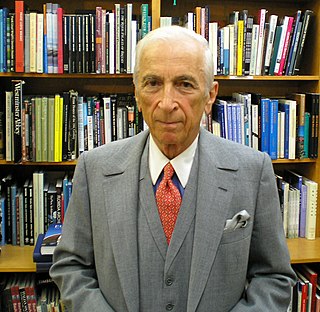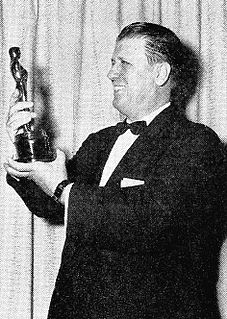A Quote by Thornton Wilder
[Dona Maria] saw that the people of this world moved about in an armor of egotism, drunk with self-gazing, athirst for compliments, hearing little of what was said to them, unmoved by the accidents that befell their closest friends, in dread of all appeals that might interrupt their long communion with their own desires.
Related Quotes
They were still in the happier stage of love. They were full of brave illusions about each other, tremendous illusions, so that the communion of self with self seemed to be on a plane where no other human relations mattered. They both seemed to have arrived there with an extraordinary innocence as though a series of pure accidents had driven them together, so many accidents that at last they were forced to conclude that they were for each other. They had arrived with clean hands, or so it seemed, after no traffic with the merely curious and clandestine.
He believed that all people existed behind varying layers of armor which, like the archaeological layers of earth itself, reflected the historical events and turbulence of a lifetime. An individual's armor that had been developed to resist pain and rejection might also block a capacity for pleasure and achievement, and feelings too deeply trapped might be released only by acts of self-destruction or harm to others. Reich was convinced that sexual deprivation and frustration motivated much of the world's chaos and warfare.
I'm very nearly drunk enough to be transcendent," Calla said after a space. She was not the only psychic drinking, but she was the closest one to transcendence. Persephone peered dubiously into the bottom of her own glass. In a very small voice (her voice was always small), she said sadly, "I am not drunk at all." Maura offered, "It's the Russian in you." "Estonian,"Persephone replied.
The world has proclaimed the reign of freedom, especially of late, but what do we see in this freedom of theirs? Nothing but slavery and self-destruction! For the world says: "You have desires and so satisfy them, for you have the same rights as the most rich and powerful. Don't be afraid of satisfying them and even multiply your desires."
The three most effective incentives to human action may be ... classified as creed, greed and dread. ... In examining the scientist it is perhaps worth while to examine how far he is moved by these three incentives. I think that, rather peculiarly and rather exceptionally, he is very little moved by dread. ... He is in fact essentially a person who has been taught he must be fearless in his dealing with facts.
We all have to lead our own life, and we only have the one life, and the only people who can live life not according to their own desires are those who have no desires--which is the majority, actually. People can say what they like, they can speak of abnegation, sacrifice, generosity, acceptance, and resignation, but it's all false. The norm is for people to think that they desire whatever comes to them, whatever they achieve along the way or whatever is given to them--they have no preconceived desires.
When you go out with a drunk, you’ll notice how a drunk fills your glass so he can empty his own. As long as you’re drinking, drinking is okay. Two’s company. Drinking is fun. If there’s a bottle, even if your glass isn’t empty, a drunk, he’ll pour a little in your glass before he fills his own. This only looks like generosity.
The more the media peddled fear, the more the people lost the ability to believe in one another. For every new ill that befell them, the media created an explanation, and the explanation always had a face and a name. The people came to fear even their closest neighbors. At the level of the individual, the community, and the nation, people sought signs of others’ ill intentions; and everywhere they looked, they found them, for this is what looking does.
He said cruelty was the devil's own trade-mark, and if we saw any one who took pleasure in cruelty we might know who he belonged to, for the devil was a murderer from the beginning, and a tormentor to the end. On the other hand, where we saw people who loved their neighbors, and were kind to man and beast, we might know that was God's mark.
There's a theory of accidents that I studied when I was making a film about nuclear weapons: you can never eliminate accidents, because the measures you introduce to prevent accidents actually produce more accidents. That's certainly true of this sport; you're flying over 40 feet of what might look like snow, but it's hard as ice, it's as hard as pavement. You're doing acrobatic spins and tricks, 40 feet above pavement, essentially. There's been more accidents since, and there are going to continue to be more accidents, that's the nature of the sport.






































